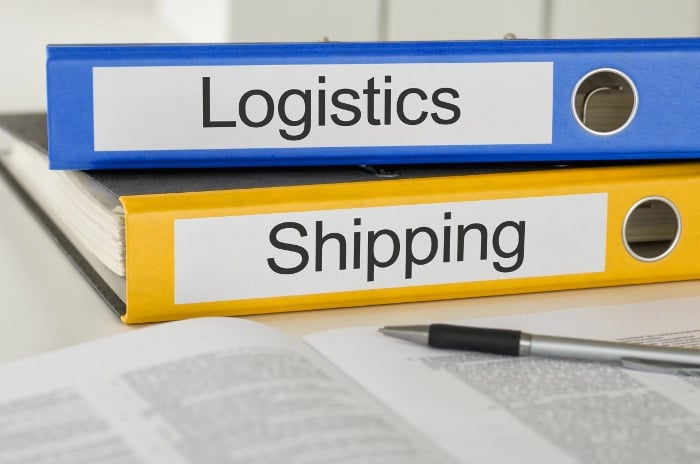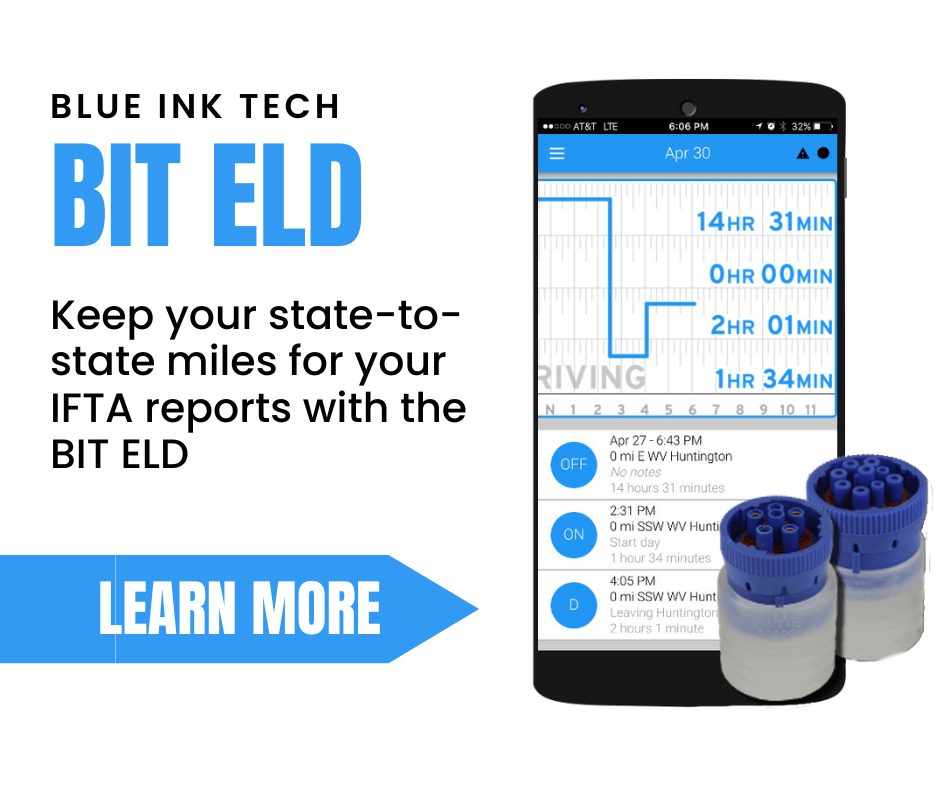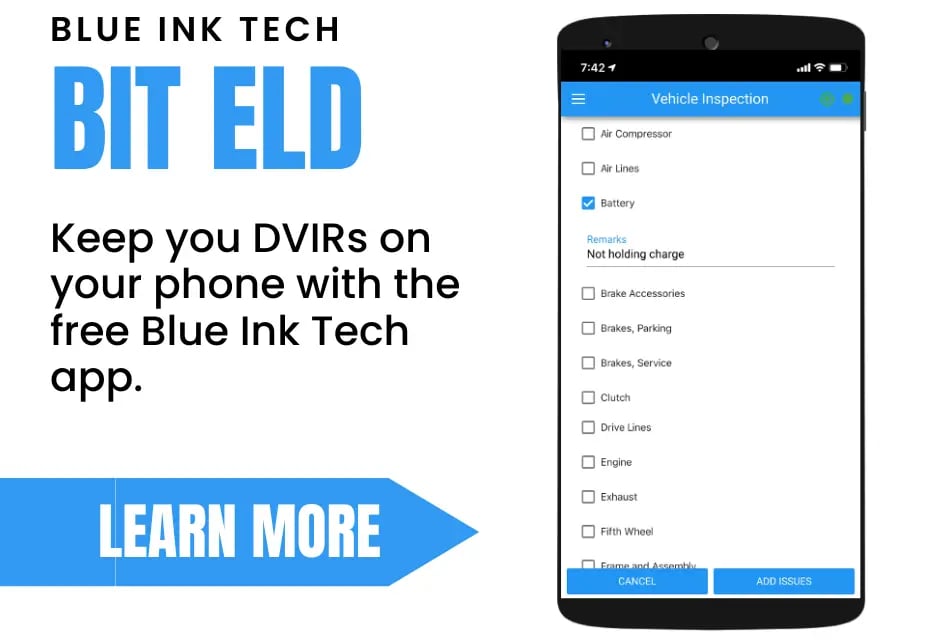When it comes to trucking, one rule of thumb that remains constant is "be prepared." Among the numerous documents that help a truck driver stay prepared on the road, the Department of Transportation (DOT) Permit Book holds an essential place.
This book, also known as a credentials binder, is the master document that contains all the critical paperwork a truck driver must have on hand during a journey. It includes:
- Commercial Driver's License (CDL)
- Medical certificate
- Motor Carrier Authority
- Proof of insurance
- Cab card
- Hours-of-service logs
- International Fuel Tax Agreement (IFTA) certificate
- Vehicle inspection reports
- Bill of lading
- Lease agreement
- EPA Emissions Certificate
- State permits
- Hazmat paperwork - when applicable
The DOT Permit Book is not just an organizational tool, it's a vital part of ensuring a driver's compliance with federal regulations and maintaining readiness for roadside inspections.
Roadside inspections are unannounced checks carried out by DOT officers to verify that commercial drivers and their vehicles are compliant with safety regulations. Not having the appropriate documentation during these inspections can result in hefty fines, penalties, or even an out-of-service order, which can be a significant setback for both the driver and their associated company.
Consequently, the DOT Permit Book is a truck driver's best companion. Read on as we delve deeper into the importance of each document and why having a comprehensive, up-to-date DOT Permit Book can make all the difference during your journey on the open road.
1. Commercial Driver’s License (CDL)
A Commercial Driver's License (CDL) is a critical document for truck drivers, granting them the legal authority to operate large, commercial vehicles across the United States. The CDL ensures that the driver has been trained and has acquired the requisite knowledge and skills to safely operate these large and potentially dangerous vehicles. It's more than just a license; it's a testament to a driver's proficiency in handling specialized vehicles that, due to their size and complexity, pose unique risks and challenges on the road.
A CDL also opens up various professional opportunities. Employers in the trucking industry require drivers to possess a CDL to guarantee they're employing individuals who have been formally assessed and certified. Moreover, there are different classes of CDLs, each with their endorsements, allowing drivers to operate specific types of vehicles, further broadening their job opportunities.
The consequences for operating a commercial vehicle without a CDL are steep. Drivers risk losing their driver’s license for a minimum of 90 days (or more) and up to a year in jail.
2. Medical Certificate
A medical certificate, also known as a DOT physical card, certifies that a driver is physically fit to operate commercial vehicles. The Federal Motor Carrier Safety Administration (FMCSA) mandates that drivers must pass a DOT physical examination every two years.
A DOT physical includes a range of tests - vision, hearing, cardiovascular health, blood pressure, and more - designed to ensure that the driver doesn't have any health conditions that could impede their ability to drive safely.
If a driver fails to comply with this requirement, they risk losing their commercial driving privileges and could face penalties or fines. Driver Fitness is the FMCSA BASIC category that these penalties fall under and these violations can impact your CSA score.
From an employment perspective, trucking companies need to ensure their drivers maintain an up-to-date medical certificate to adhere to federal laws and to ensure the well-being of their employees.
3. Title and Registration
A title and registration are crucial documents for a truck driver because they establish the legal ownership and operational legality of the vehicle.
The title, or "pink slip," verifies the ownership of the vehicle and provides information about the vehicle's history. It's particularly important for owner-operators in the trucking industry. In case of any disputes regarding ownership or if the vehicle is involved in legal issues, the title serves as a crucial legal document.
The vehicle Registration document is mandatory for all vehicles on the road, including commercial trucks. It confirms that the vehicle is legally authorized to be driven on public roads and has met all necessary state and federal regulations.
The registration process typically involves paying a fee and providing proof of insurance, after which the vehicle is issued with a license plate and a registration card. This card must be present in the vehicle at all times when it is in operation.
Driving without a valid registration could result in fines, penalties, and even impounding of the vehicle. Thus, maintaining up-to-date vehicle registration is essential for truck drivers to ensure legal operation and avoid potential legal issues.
4. Motor Carrier Authority
Operating Authority, issued by the FMCSA, authorizes carriers to transport goods across state lines and stipulates the type of cargo they can carry. It's proof that the trucking company has met all federal regulations and requirements needed to conduct interstate operations.
The importance of the Motor Carrier Authority goes beyond mere compliance with the law. It has a significant impact on a driver's or a company's reputation in the industry. Clients, brokers, and freight forwarders typically prefer to work with authorized carriers due to the assurance of professionalism and adherence to safety standards.
Additionally, the authority differentiates between different types of freight services – whether a company operates as a private or a for-hire carrier, or whether it hauls regulated commodities or household goods, etc. So, for an owner/operator, having this authority not only legitimizes their operations but also opens up a wider scope of business opportunities.
5. Proof of Insurance
Proof of insurance is an essential document for a truck driver because it demonstrates financial responsibility in case of accidents or damage. In the event of an accident, the proof of insurance is one of the first documents that law enforcement officials will ask for.
Carrying adequate insurance and having proof of it is also a legal requirement in most, if not all, jurisdictions. For instance, the Federal Motor Carrier Safety Administration (FMCSA) requires commercial vehicles operating interstate to carry a minimum level of insurance coverage, the specifics of which depend on the type of freight transported.
Failure to provide proof of such insurance can lead to serious legal consequences, including fines, suspension of the commercial driver's license or operating authority, and potential civil liability.
6. Cab Card
A cab card serves as proof that the vehicle is registered under the International Registration Plan (IRP). The IRP is an agreement among the 48 contiguous U.S. states, the District of Columbia and 10 Canadian provinces, which allows for the payment of commercial motor vehicle registration fees based on the total distance operated in all jurisdictions. The cab card, which must be carried in the vehicle at all times, lists all the states and provinces where the truck is authorized to travel.
Not only does the cab card simplify the process of registering commercial vehicles that operate across multiple jurisdictions, but it's also necessary for regulatory compliance. If a truck is inspected or a driver is asked to produce documents for the vehicle, the cab card will be one of the required documents.
Failure to produce a valid cab card can lead to fines, penalties, or out-of-service orders until the issue is rectified. Without it, you may have to apply for entry to every state you pass through.
7. Daily Hours of Service Log
Hours-of-service (HOS) logs are crucial documents for truck drivers because they record the number of hours a driver has worked and rested. The FMCSA sets these regulations to prevent driver fatigue, which is a significant cause of accidents in the trucking industry. HOS logs, whether maintained manually or through an Electronic Logging Device (ELD), provide a clear and auditable record of a driver's compliance with these regulations.
These logs are also important from a legal perspective. During roadside inspections or in the event of an accident, law enforcement or Department of Transportation (DOT) officials may request to see a driver's HOS logs. The hours-of-service BASIC is one of the FMCSA's 7 Behavior Analysis and Safety Improvement Categories (BASIC). Discrepancies, violations of HOS rules, or failure to produce these logs can result in fines, penalties, out-of-service orders, and a negative impact on the carrier's Safety Measurement System (SMS) and CSA scores.
8. International Fuel Tax Agreement (IFTA) Certificate
The IFTA certificate is an essential document for a truck driver, particularly those operating across multiple jurisdictions. IFTA is an agreement among the 48 contiguous U.S. states and 10 Canadian provinces, designed to simplify the reporting and payment of fuel taxes by interstate motor carriers.
The IFTA certificate, accompanied by corresponding decals placed on the truck, serves as proof that the carrier is in compliance with IFTA requirements and has fulfilled its tax obligations.
From a practical perspective, having an IFTA certificate simplifies operations for truck drivers or trucking companies by eliminating the need to purchase fuel permits each time they enter a new jurisdiction. During roadside inspections, law enforcement officials may ask to see a driver's IFTA certificate.
Failure to produce this certificate, or operating without proper IFTA decals, can result in fines, penalties, or out-of-service orders until the issue is rectified.
9. Safety Certificates
Pre-trip inspections or Daily Vehicle Inspection Reports (DVIR) are essential documents for truck drivers as they are a key part of preventive maintenance and safety measures in the trucking industry. These inspections involve checking crucial vehicle systems such as brakes, tires, lights, and fluid levels, among others, before hitting the road. These checks help identify potential mechanical issues or safety hazards that could lead to breakdowns or accidents during the journey.
Pre-trip inspection reports are also mandatory under FMCSA regulations. Drivers are required to complete and sign a report at the end of each workday, detailing any defects or deficiencies they have identified that could affect the safe operation of the vehicle or result in its mechanical breakdown.
If during a roadside inspection a law enforcement official requests these reports, failure to produce them can lead to fines or out-of-service orders.
10. Bill of Lading
A Bill of Lading (BOL) is a vital document for a truck driver as it serves several crucial functions in the transportation of goods. Firstly, it acts as a contract between the shipper and the carrier for the transportation of goods. It provides details about the cargo, including the type, quantity, and destination of the goods being transported.
Secondly, it serves as a receipt. When the cargo is delivered, the recipient signs the BOL, confirming that they received the goods in the correct quantity and acceptable condition. Thus, the BOL provides a detailed record of the transaction from shipment to delivery, protecting all parties involved in case of disputes or claims about lost, damaged, or delayed cargo.
Furthermore, the BOL can also serve as a document of title, giving the holder the rights to the goods. This is important in situations where goods are being sold while in transit.
Drivers are required to have a BOL in their possession while transporting goods, and it can be requested during roadside inspections. Therefore, a BOL is not just a business document, but a crucial legal tool in the freight transportation process, ensuring transparency, facilitating dispute resolution, and serving as proof of cargo transfer and ownership.
11. Lease Agreement
A lease agreement is a critical document for truck drivers, particularly those who are operating under a lease agreement with a trucking company. This document outlines the terms and conditions of the lease, including payment terms, responsibilities for maintenance and repairs, provision of insurance, and duration of the lease. It essentially defines the working relationship between the driver and the trucking company, clearly delineating what is expected from both parties.
For owner-operators, the lease agreement can also determine how much control they have over their routes, schedules, and freight, which can significantly impact their earnings and job satisfaction.
A lease agreement is also important for legal and regulatory compliance. The FMCSA has specific regulations concerning lease agreements in the trucking industry, designed to protect the rights of drivers. These rules require certain provisions to be included in the lease agreement and mandate that a copy of the lease be carried in the vehicle at all times when it is in operation.
12. EPA Emissions Certificates
The Environmental Protection Agency (EPA) Emissions Certificates certify that a vehicle meets federal emissions standards. These standards are in place to limit the amount of harmful pollutants that vehicles release into the atmosphere, as part of efforts to protect the environment and public health.
Trucks, given their size and the distances they cover, can be significant sources of pollution if not properly regulated. An EPA Emissions Certificate is proof that the vehicle has been tested and meets the necessary environmental standards.
Failure to meet these standards can result in penalties, including fines and restrictions on vehicle operation. In some jurisdictions, it may also be a requirement to present an EPA Emissions Certificate during routine inspections or when renewing a vehicle's registration.
13. State Permits
State permits are critical for truck drivers, especially those operating interstate. Specific permits required can vary widely depending on the nature of the load, the vehicle's size and weight, and the states through which the driver will be traveling.
A truck carrying an oversized or overweight load may require special permits in each state it traverses. These permits authorize the transportation of loads that exceed standard legal size and weight limits, and they may also stipulate specific routes to be used or require the use of escort vehicles.
Another common type of state-specific permit is related to fuel taxes, like the IFTA permit. Some states, such as Oregon, are not part of the IFTA and require their own separate fuel permits.
Certain states require permits for transporting specific types of cargo, such as hazardous materials or certain agricultural products. New York imposes a highway use tax (HUT) on motor carriers for certain vehicles on certain public highways. Oregon and Kentucky are two states with similar policies.
Failing to possess the necessary state permits could lead to substantial fines, penalties, or delays, so it's crucial for drivers to familiarize themselves with the permit requirements of all states in which they will be operating.
14. Hazmat Paperwork
Hazardous materials (Hazmat) paperwork provides essential information about the cargo. This includes details such as the type, quantity, and level of hazard associated with the materials, as well as instructions for handling and emergency procedures.
This information not only guides drivers on how to load, transport, and unload these materials safely, but it also provides important information to emergency responders in case of accidents or spills.
Carrying appropriate hazmat paperwork is a legal requirement under federal regulations. The FMCSA and the DOT mandate specific documentation for the transportation of hazardous materials, including shipping papers, emergency response information, and certificates of training, among others.
Drivers found to be transporting hazardous materials without the required documentation can face serious penalties, including fines and out-of-service orders.




